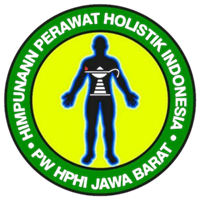Genetic Inheritance Risk Calculation as a Practical Approach in Health Prevention and Management: A Perspective
DOI:
https://doi.org/10.56359/gj.v5i1.341Keywords:
genetic counseling, genetic risk, genomic, inheritance pattern, screeningAbstract
In the genomic era, understanding the risk of inheriting genetic diseases has become a crucial element in designing effective health prevention and management strategies. The initial step in calculating the risk of genetic inheritance involves gathering information about family health history. Through the analysis of genetic data and family health history, healthcare professionals can determine an individual's potential genetic risk for various diseases. Calculating the risk of genetic inheritance has several important benefits, including early prevention and management, family planning, genetic counseling, targeted therapy and care development, and informed medical decision making. By knowing an individual's genetic risk for a particular disease, they can take appropriate prevention measures or early management actions. These may include lifestyle changes, regular health check-ups, or even advanced genetic testing for early detection. In Family Planning, calculating genetic risk can assist individuals and couples in planning pregnancies and families more effectively. If a high risk is detected, couples can consider options such as genetic counseling, premarital screening, or selecting suitable reproductive methods. Overall, calculating the risk of inheriting genetic diseases can provide individuals and families with valuable information to take preventive measures, make informed medical decisions, and manage their health more effectively.
Downloads
References
Alswaidi, F. M., & O’Brien, S. J. (2009). Premarital screening programmes for haemoglobinopathies, HIV and hepatitis viruses: Review and factors affecting their success. In Journal of Medical Screening (Vol. 16, Issue 1). https://doi.org/10.1258/jms.2008.008029
Aronson, S. J., & Rehm, H. L. (2015). Building the foundation for genomics in precision medicine. In Nature (Vol. 526, Issue 7573). https://doi.org/10.1038/nature15816
Baptista, P. V. (2005). Principles in genetic risk assessment. Therapeutics and Clinical Risk Management, 1(1). https://doi.org/10.2147/tcrm.1.1.15.53606
Chen, H., Liu, X., Brendler, C. B., Ankerst, D. P., Leach, R. J., Goodman, P. J., Lucia, M. S., Tangen, C. M., Wang, L., Hsu, F. C., Sun, J., Kader, A. K., Isaacs, W. B., Helfand, B. T., Zheng, S. L., Thompson, I. M., Platz, E. A., & Xu, J. (2016). Adding genetic risk score to family history identifies twice as many high-risk men for prostate cancer: Results from the prostate cancer prevention trial. Prostate, 76(12). https://doi.org/10.1002/pros.23200
Grant, R. W., O’Brien, K. E., Waxler, J. L., Vassy, J. L., Delahanty, L. M., Bissett, L. G., Green, R. C., Stember, K. G., Guiducci, C., Park, E. R., Florez, J. C., & Meigs, J. B. (2013). Personalized genetic risk counseling to motivate diabetes prevention: A randomized trial. Diabetes Care, 36(1), 13–19. https://doi.org/10.2337/dc12-0884
Ji, Y., Skierka, J. M., Blommel, J. H., Moore, B. E., VanCuyk, D. L., Bruflat, J. K., Peterson, L. M., Veldhuizen, T. L., Fadra, N., Peterson, S. E., Lagerstedt, S. A., Train, L. J., Baudhuin, L. M., Klee, E. W., Ferber, M. J., Bielinski, S. J., Caraballo, P. J., Weinshilboum, R. M., & Black, J. L. (2016). Preemptive Pharmacogenomic Testing for Precision Medicine. The Journal of Molecular Diagnostics, 18(3), 438–445. https://doi.org/10.1016/j.jmoldx.2016.01.003
Krautscheid, P., & LaGrave, D. (2016). Pedigree analysis and risk assessment. In Molecular Pathology in Clinical Practice:Second Edition. https://doi.org/10.1007/978-3-319-19674-9_4
Matziou, V., Vlahioti, E., Perdikaris, P., Matziou, T., Megapanou, E., & Petsios, K. (2014). Physician and nursing perceptions concerning interprofessional communication and collaboration. Journal of Interprofessional Care, 28(6), 526–533.
Setiawan, H., Firmansyah, A., & Purwati, A. E. (2024). Integration of genomic nursing in nursing education curriculum in Indonesia: A perspective. Journal of Taibah University Medical Sciences, 19(2), 250.
Setiawan, H., Firmansyah, A., & Richard, S. D. (2023). The role of nurses to control beta thalassemia disease in Indonesia: A perspective. Journal of Taibah University Medical Sciences, 18(5), 964–966. https://doi.org/https://doi.org/10.1016/j.jtumed.2023.02.007
Setiawan, H., Sandi, Y. D. L., Andarini, E., Kurniawan, R., Richard, S. D., & Ariyanto, H. (2021). The effect of genetic counseling on depression, anxiety, and knowledge level among diabetes mellitus patients. Kontakt, 23(4), 330–337. https://doi.org/https://doi.org/10.32725/kont.2021.035
Setiawan, H., Suhanda, S., & Setiawan, D. (2022). Coaching Clinic as a Strategy to Improve Knowledge and Competence of Nurses in Providing Genetic Counseling Interventions among Thalassemia Patients. International Journal of Community Based Nursing and Midwifery, 10(1), 84. https://doi.org/https://doi.org/10.30476/ijcbnm.2021.92764.1883
Weinshilboum, R. M., & Wang, L. (2017). Pharmacogenomics: Precision Medicine and Drug Response. In Mayo Clinic Proceedings (Vol. 92, Issue 11). https://doi.org/10.1016/j.mayocp.2017.09.001
Yanes, T., Willis, A. M., Meiser, B., Tucker, K. M., & Best, M. (2019). Psychosocial and behavioral outcomes of genomic testing in cancer: a systematic review. European Journal of Human Genetics, 27(1). https://doi.org/10.1038/s41431-018-0257-5
Zheng, M., Jin, H., Shi, N., Duan, C., Wang, D., Yu, X., & Li, X. (2018). The relationship between health literacy and quality of life: A systematic review and meta-analysis. In Health and Quality of Life Outcomes (Vol. 16, Issue 1). https://doi.org/10.1186/s12955-018-1031-7
Zhong, A., Darren, B., Loiseau, B., He, L. Q. B., Chang, T., Hill, J., & Dimaras, H. (2021). Ethical, social, and cultural issues related to clinical genetic testing and counseling in low- and middle-income countries: a systematic review. In Genetics in Medicine (Vol. 23, Issue 12). https://doi.org/10.1038/s41436-018-0090-9
Downloads
Published
How to Cite
Issue
Section
License
Copyright (c) 2024 Henri Setiawan, Suhanda

This work is licensed under a Creative Commons Attribution 4.0 International License.















